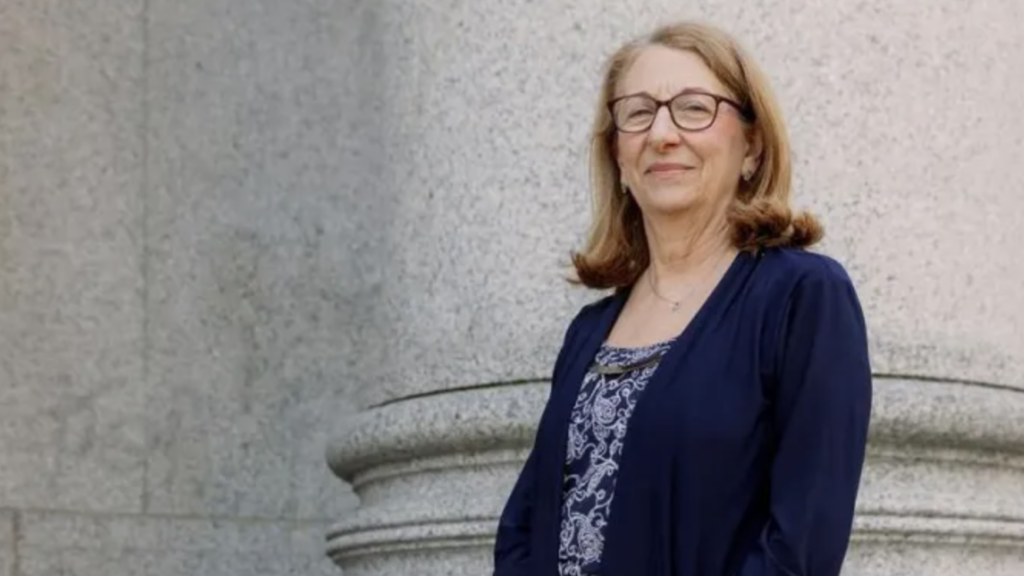Fourteen states and several pro-life groups joined a lawsuit, Vitagliano v. County of Westchester, on Friday urging the U.S. Supreme Court to overrule laws restricting pro-lifers’ free speech near abortion clinics across the country.
Kentucky, Alabama, Arkansas, Idaho, Iowa, Mississippi, Missouri, Montana, Nebraska, South Carolina, Tennessee, Texas, Utah, and West Virginia all signed onto an amicus brief in support of pro-lifers’ free speech.
According to the states’ brief, the laws have “dire consequences” by allowing the government to “cut off speech on a hotly contested moral and political issue” outside an abortion clinic “where a pregnant woman makes a life-altering decision for both herself and her child.”
Several legal experts as well as pro-life organizations, including pregnancy resource centers, also filed amicus briefs. In all, 18 different amicus briefs were filed in support of pro-life free speech.
Fourteen states, legal experts, sidewalk counselors & more filed briefs supporting a sidewalk counselor’s request to #SCOTUS. Debra Vitagliano is asking the Court to hear her case, where she has challenged a Westchester County, NY law prohibiting her ministry on public sidewalks.
— BECKET (@BECKETlaw) August 25, 2023
The case revolves around Debra Vitagliano, a Catholic mother of three who is suing a New York county for barring pro-lifers from counseling women and offering them alternatives to abortion within 100 feet of a clinic, including sidewalks.
Vitagliano is being represented by Becket, a law firm specializing in religious rights and free speech cases.
Vitagliano, 64, is an occupational therapist for special needs children. As a Catholic and someone who works with special needs children, Vitagliano believes every child has human dignity and deserves a chance at life.
She trained to become a sidewalk counselor to help women choose life but was stopped by a Westchester County law, known as the Reproductive Health Care Facilities Access Act, which among other provisions bans pro-life speech outside abortion clinics.
“I want to offer abortion-vulnerable women a message of hope and compassion, letting them know that they are loved and can keep their babies,” Vitagliano said in an Aug. 25 press release by Becket.
The Westchester County law, called a “bubble” or “buffer” zone law, imposes misdemeanor penalties of up to $5,000 and a year in jail for pro-lifers attempting to counsel women outside abortion clinics.
The New York county law was passed after the overturn of Roe v. Wade in June 2022. It is based on a similar Colorado law that established a precedent for such bubble zones in the 2000 Supreme Court case Hill v. Colorado.
“Legal scholars and judges have long criticized Hill, and last year, five justices of the Supreme Court stated that Hill was a major departure from our nation’s protections of free speech,” Becket said in a press release. “Debra’s case presents an ideal opportunity for the Supreme Court to right Hill’s wrong and protect all those who want to serve abortion-vulnerable women.”
According to the states’ brief, “Hill has allowed the government to infringe on First Amendment rights for over 20 years and counting.”
Vitagliano’s case was dismissed by a New York District Court based on the Hill v. Colorado precedent. Her case was then dismissed again on June 21 by the Second Circuit Court of Appeals for the same reason.
Both courts agreed with lawyers for Westchester County that the New York bubble law is valid under binding precedent established by Hill in 2000.
In its decision, the Second Circuit Court said that Vitagliano’s arguments that Hill was wrongly decided “have no bearing on the disposition of the appeal.”
The appeals court went on to say that “the Supreme Court has stated in clear terms that ‘[i]f a precedent of this court has direct application in a case, yet appears to rest on reasons rejected in some other line of decisions, the Court of Appeals should follow the case [that] directly controls, leaving to this court the prerogative of overruling its own decisions.’”
Accordingly, Hill remains controlling precedent and dictates that the county’s bubble zone withstands First Amendment scrutiny.
Now, Vitagliano is asking the Supreme Court to revisit the Hill v. Colorado precedent and overrule laws restricting the free speech of pro-lifers near abortion clinics across the country.
The Supreme Court has yet to say whether it will take up the case.
Mark Rienzi, president and CEO of Becket, told CNA that he is “optimistic” that the Supreme Court will take up the case “as an opportunity to overrule Hill and help protect the First Amendment rights of sidewalk counselors across the country.”
According to Rienzi, the court will likely decide this fall whether to take the case.
Rienzi said that the slew of amicus briefs signifies an “outpouring of support” that “emphatically underscores the importance of Mrs. Vitagliano’s case and the need for the court to take it.”
“Eighteen briefs in support of certiorari is a huge number,” Rienzi said. “The briefs dismantle the reasoning of the Supreme Court’s old Roe-era precedent — Hill v. Colorado — upholding bubble zone laws outside abortion clinics.”
“Especially in light of this diverse coalition of support,” Rienzi went on, “it is clear the court should finally overturn Hill, restore free speech outside abortion clinics, and protect both life-affirming sidewalk counselors and the abortion-vulnerable women who deserve their help.”
On Aug. 7 the Westchester Board of Legislators voted to repeal the provision of the bubble zone law that prevented pro-life counselors from approaching abortion-minded women outside abortion clinics, according to the Catholic law firm the Thomas More Society. Nevertheless, the Thomas More Society said in an Aug. 9 statement that dangerous remaining aspects of the Westchester law still warrant a pro-life response.
According to the Thomas More Society, there are six remaining provisions in Westchester County law that impose significant restrictions on pro-life free speech.
The firm is representing 40 Days for Life in a separate lawsuit involving the Westchester County’s restrictions on pro-life advocacy.

